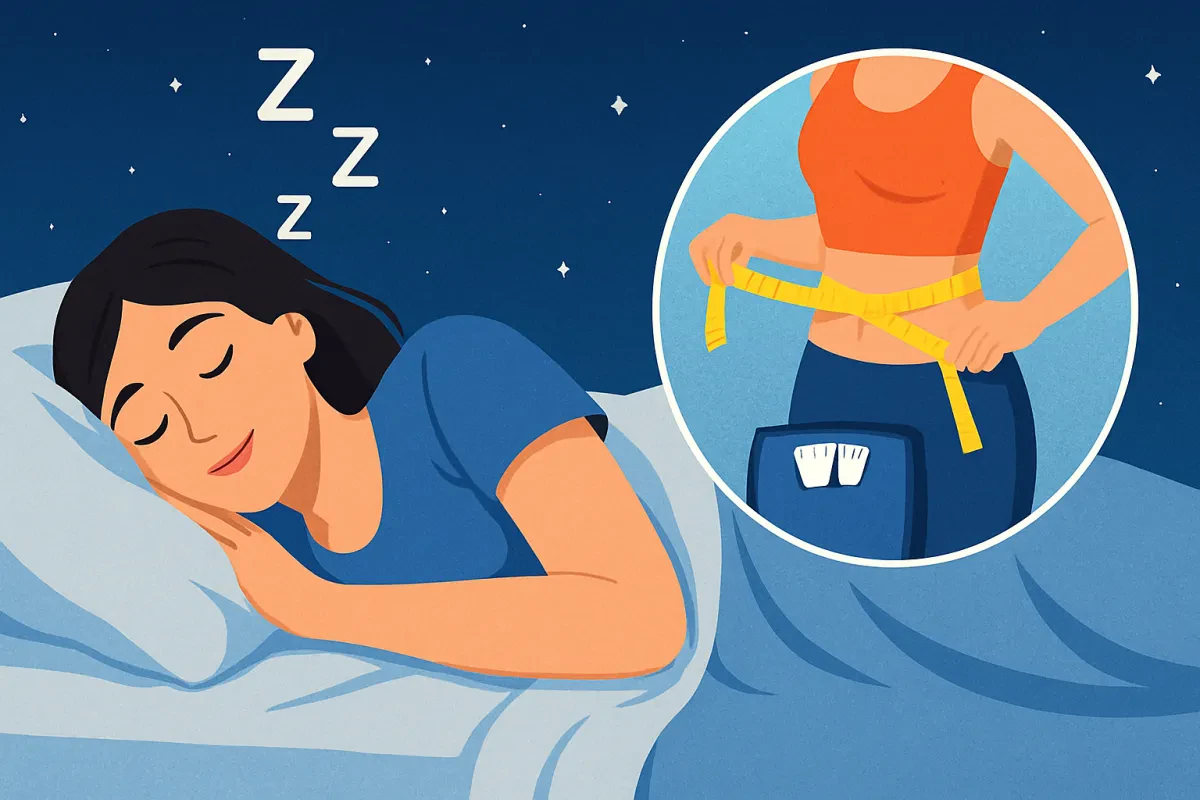When it comes to losing weight, we often focus on diet and exercise, but sleep is just as important—especially those deep sleep cycles! Deep sleep is like a magical reset button for your body. It’s when your body works its hardest to heal, recover, and recharge.
During deep sleep, your body releases growth hormones that help build muscle and burn fat. This is also the time when your brain processes memories and flushes out toxins. So, if you’re not hitting those deep sleep stages, you might be missing out on the benefits that support weight loss and overall health.
But how do you get more of that restorative deep sleep? Creating a nice bedtime routine can make a big difference. Think about winding down with a book or some gentle stretching instead of scrolling on your phone. Keep your room cool, dark, and quiet, and try to stick to a consistent sleep schedule. Your body loves routine!
Finally, pay attention to your diet too. Foods rich in magnesium, like nuts and leafy greens, can promote better sleep. You can also ditch caffeine in the afternoon to help your body relax at night. Remember, better sleep leads to better mornings and can help make those weight loss goals much easier to achieve!
Tips for Creating Your Sleep Sanctuary
Creating a sleep sanctuary is all about making a cozy space that encourages relaxation and rest. Here are some simple tips to transform your bedroom into the perfect place for deep sleep.
1. Keep it Dark: The darker your room, the better your chances of falling asleep quickly. Consider blackout curtains or shades to block outside light. A sleep mask can help if you can’t make your room completely dark.
2. Control the Temperature: Aim for a cool room, ideally between 60-67°F (15-19°C). A cooler environment can help lower your body temperature, making it easier to drift off. Keep a fan or open a window for fresh air.
3. Invest in Comfort: Your mattress and pillows play a big role in how well you sleep. Make sure your mattress is the right firmness for you and consider pillows that support your neck and back. Don’t forget to cuddle up in soft, breathable sheets!
4. Minimize Noise: If you live in a noisy area, try using a white noise machine or a fan to drown out distracting sounds. Earplugs are also a great option if you've got a lot of noise around you at night.
5. Keep it Tidy: A cluttered space can lead to a cluttered mind. Take a little time to declutter your room, removing any unnecessary items that might distract you. A calm space can promote a calm state of mind, making it easier to relax before bed.
Foods That Boost Sleep Quality
Getting quality sleep is key to weight loss, and believe it or not, the foods you eat can really help. Snacking on the right things before bedtime could be your secret weapon. Let's dive into some delicious options that may enhance your sleep quality.
1. Cherries: These little fruits are not just tasty; they're one of the few natural sources of melatonin, the hormone that helps regulate your sleep. A small bowl of cherries in the evening can be a sweet way to help you drift off.
2. Walnuts: Not only are they nutty and satisfying, but walnuts also contain melatonin and healthy fats that can keep your hunger at bay. Try a handful before bed for a crunchy treat that supports great sleep.
3. Oatmeal: A warm bowl of oatmeal isn’t just for breakfast! It’s a comforting evening snack that’s packed with carbs, which help the brain absorb tryptophan, a sleep-inducing amino acid. Add a little honey or banana for extra flavor.
4. Herbal Tea: Warm up with a cup of chamomile or peppermint tea. These caffeine-free blends can relax your body and mind, making it easier to settle in for the night. Plus, they can keep late-night cravings in check!
How Sleep Affects Weight Loss
Getting enough sleep is more than just feeling rested; it plays a major role in weight loss. When you sleep, your body goes into repair mode, balancing hormones that regulate hunger and metabolism. If you’re not getting those zzz’s, things can get a little out of whack.
First off, lack of sleep boosts the levels of ghrelin, the hunger hormone. This can make you feel hungrier and crave more snacks. On the flip side, it lowers leptin, which tells your brain when you're full. So, if you’re not sleeping enough, you might end up eating more than you really need.
Plus, sleep deprivation can mess with your energy levels. When you’re tired, you’re less likely to hit the gym or even take that evening walk. Instead, you might find yourself curled up on the couch with a snack. It’s a cycle that can be hard to break if you don’t prioritize your sleep.
Lastly, good sleep helps your body recover from workouts and regulates blood sugar levels. When you sleep well, your body processes what you eat more effectively, helping to keep those pesky cravings at bay. So, treat sleep like a vital part of your weight loss journey – it’s just as important as what you eat and how much you move!
Watch the Renew Metabolic Regeneration Formula product video
Affiliate Disclaimer:
Please note that some of the links included in this article are affiliate links. This means that I may earn a commission if you make a purchase through these links. However, please rest assured that this comes at no additional cost to you. I only recommend products and services that I believe will add value to my readers. Your support through purchasing via these links helps to keep this website running and allows me to continue providing valuable content. Thank you for your support!




